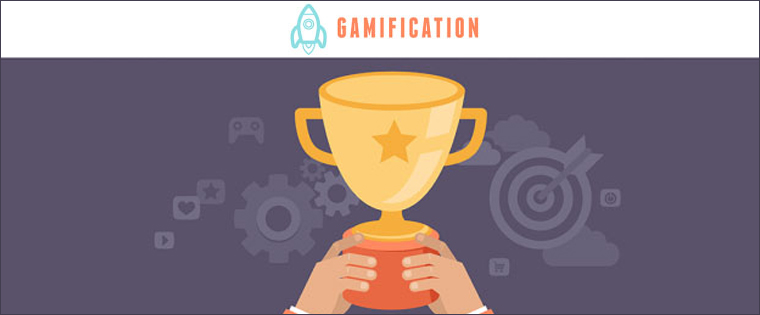Why Gamification Works for Online Healthcare Training

Ever wondered how you can make online healthcare training feel more like a thrilling quest than a mundane lecture? By leveraging the magic of gamification at play! In our latest blog, we're unraveling the secrets behind why turning medical training into a game is the ultimate prescription for success. From boosting engagement to injecting a dose of fun into learning, we're breaking down how gamification is transforming the way we train our healthcare heroes.
Wondering Why Gamification Works Great for Online Healthcare Training?
Here are a few reasons -
- Builds an emotional connect
- Offers the freedom to fail
- Engages learners
- Provides instant feedback
Picture this: You're a medical trainee navigating the intricate world of diagnostics, and instead of traditional textbooks, you find yourself immersed in a virtual emergency room. This isn't a video game; it's gamified healthcare training in action. As you encounter simulated patients with diverse symptoms, each case becomes a quest to unravel the medical mystery. Earn points for accurate diagnoses, collaborate with virtual colleagues, and watch your 'healthcare hero' rank soar. It's not just about memorizing facts; it's about applying knowledge in a dynamic setting. Take a wrong turn, and the patient's condition might worsen—a virtual reminder of the real-world stakes.
This innovative approach transforms learning into a captivating adventure, ensuring that when you face similar situations in your medical career, you're not just armed with knowledge, but with the confidence that comes from mastering it in a virtual realm. This is the power of gamification in healthcare training—making learning not just informative but genuinely engaging and memorable. Apart from gamification, as a bonus, here are a few other modern training methods for healthcare training.
How Gamification Makes Online Healthcare Training More Effective
1. Builds an Emotional Connect
Emotions play an important role in the learning process. Gamifying your online healthcare training program can evoke nostalgia and transport you back to childhood. Let’s assume you have to roll out an online custom eLearning or training program to nurses in the emergency room (ER) on the dos and don’ts of handling patients in the ER. You could choose to display a bulleted slide and expect that learners will adhere to the instructions, based on rational judgment. But this does not happen always.
→ Download Checklist Now: How to Develop Effective Online Training Programs
On the other hand, if you use gamification in the online healthcare training program, you can build an emotional connection with learners. Instead of displaying a bulleted slide, you can use gamification elements to assess the learner’s understanding of the rules to be followed in patient care. When the learner makes the correct choice, he can be rewarded in the form of badges or points and proceed to the next question. In case of an incorrect answer, the learner can be shown a video or an animation that depicts the consequences of not following patient care rules. This ensures that the learner connects with the information being delivered through the online training program. Also, this boosts knowledge retention.
2. Offers the Freedom to Fail
In a traditional learning environment, learners are scored objectively. If you do not have the correct answers to questions posed to you, you end up failing the assessment. When you answer a question incorrectly, you are told that you are not correct, but not told why, nor do you get an insight into the real consequences of making mistakes on the job.
With games, it’s a different scenario. You win some, you lose some. Gamification accommodates failure. You always get a second or a third chance as there are multiple lives for the player in a game. The learner who is going through a gamified online training program gets multiple opportunities to perform a task until they do it correctly. For example, you could gamify the learning experience for nursing trainees who need to be trained on handling the challenges they will face in their jobs. A hurdles game where the learner needs to complete a challenge to cross a hurdle and move on to the next level will not only provide an engaging digital learning experience but also prepare learners for their duties at the workplace.
3. Engages Learners
Gamifying your online healthcare training program can motivate learners to complete courses. Here is how gamification in online healthcare training engages learners:
- Helps learners understand what’s in it for them
- Taps into their intrinsic motivation
- Lays down a clear path on where the learner is and where he needs to go
- Turns boring activities into interesting tasks
Here is a short video that enlists the 7 steps to design gamification in training.
4. Provides Instant Feedback
Traditional training programs can be overwhelming and feedback is often delivered only at the end of the training program. Gamification offers immediate and consistent feedback and you do not have to wait till the end of the training program to know how you have performed. With gamification elements such as leaderboards, you can compare your progress in achieving training goals with others.
Let’s take the example of an online healthcare training program for nurses. You can help learners prioritize learning activities within the training program by assigning different points to each activity. This in turn indicates the priority for each activity. Feedback can also be in the form of badges that indicate the successful completion of a learning activity. Gamifying online training programs can be challenging as it takes more time and more creativity to get it right, but this is an investment that will pay off big time.
Wrapping Up!
As we wrap up our journey through the gamified realm of healthcare training, it's clear that learning can be as exciting as playing your favorite game. By blending fun with training with the help of gamification, we're not just preparing healthcare professionals; we're creating a generation of confident, adaptable problem-solvers. So, whether you're a seasoned pro or a budding medic, remember: the next level of medical excellence might just be a game away. As we were discussing about online healthcare training, here’s a bonus checklist to help you understand more about how to develop effective online programs.
Editor’s note: This post was originally published in January 2018 and has been updated for comprehensiveness.




![Online Training — How to Develop Effective Programs [Checklist]](https://no-cache.hubspot.com/cta/default/59327/ae131a0f-e51b-4928-8e55-88f70c46a14e.png)


